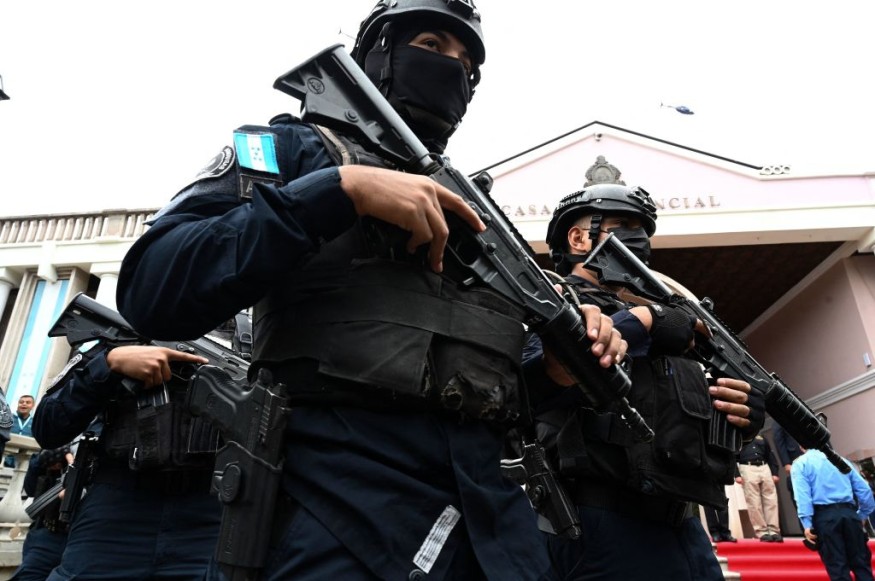Honduras Declares National Security Emergency Amid Rising Number of Gang Extortions

Honduras has announced a national security emergency while launching a new plan to combat a rising number of gang extortions in the country.
Honduran President Xiomara Castro made the declaration and announced the implementation of the Integral Plan for the Treatment of Extortion and Related Crimes from the Presidential House on Thursday.
According to TeleSUR, the national security emergency implies states of exception and suspension of partial constitutional guarantees in various areas or sectors affected by increased crime, including gang extortions.
"With the integral strategy against extortion and related crimes announced today by the National Police, this Government of Democratic Socialism declares war on extortion," Castro said in a television broadcast.
The Honduran president vowed to provide "all the security demanded by the Honduran people and restore the dignity lost under the previous regime." Castro ordered that controls and surveillance of land, air, and maritime borders be carried out jointly by the Armed Forces and the Military Police of Public Order.
The National Telecommunications Commission must also control the sale of chips for telephones and should be marketed only with the identity number. On the other hand, the National Banking and Insurance Commission must ensure that all economic transactions be carried out with the responsible party's identification.
Honduras Declares National Security Emergency Over Gang Extortions
The national security emergency declaration will allow the Honduran government to make "extraordinary" use of public funds to fight criminal gangs known to be involved in illegal activities such as drug trafficking and kidnapping.
Xiomara Castro said the new plan to fight extortion affecting Honduras was declared after pressure from the truck, bus, taxi drivers, residents, and non-governmental organizations.
The mentioned sectors said extortion has worsened in recent months and was committed largely by the Mara Salvatrucha MS-13 and Mara Barrio 18 gangs. People who pay gangs were reportedly offered protection and were not killed.
Criminal organizations have torched buses and killed drivers for not paying the fee. It prompted businesses and residents to pay gangs out of fear.
The extortion scheme generates annual profits equivalent to $737 million for the Honduran gangs, around 3% of the country's gross domestic product, as stated by the security-focused NGO Association for a More Just Society.
Honduras Gangs
A 2021 Human Rights Watch world report on Honduras noted that violent organized crime continued to disturb the Honduran society, even pushing numerous people to leave the country.
Most of the groups targeted for violence were journalists, environmental activists, lesbian, gay, bisexual, and transgender individuals, and people with disabilities.
HRW estimated that the number of active gang members ranges from 5,000 to 40,000, with the criminal groups exercising territorial control over neighborhoods and extorting residents. Aside from extortion, they also forcibly recruit children and sexually abuse women, girls, and LGBT people.
Gangs who are responsible for Honduras' murder rate and have earned a notorious reputation for extortion and drug peddling were Mara Salvatrucha and the 18th Street Gang.
In 2018, the Honduran government created a special force to combat Honduran gangs, with members including officers from the police, the military, and the Attorney's General Office. However, abuse of security forces and alleged collusion have contributed to ongoing gang violence.
READ MORE : Honduras Travel: Safety Advisories and Tourist Attractions You Should See During Your Visit in Honduras
This article is owned by Latin Post.
Written by: Mary Webber
WATCH: Honduras Families Flee as Criminal Gangs Seek to Recruit Children - From Al Jazeera English
Subscribe to Latin Post!
Sign up for our free newsletter for the Latest coverage!
© 2026 Latin Post. All rights reserved. Do not reproduce without permission.














